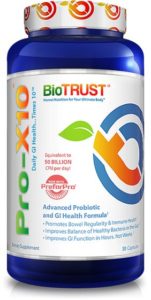What Foods To Avoid With Digestive Problems

People with a natural tendency toward digestive problems should refrain from eating “trigger” foods. These are foods that can cause a digestive response ranging from heartburn, to indigestion, abdominal pain and cramping, constipation or diarrhea.
While each individual can come up with their own list of foods to avoid, there are 3 foods that are on most people’s lists.
Free Report: 10 Health Benefits of Improving Your Fitness
4 Foods To Avoid if You Have Digestive Problems
Dairy
While eating milk and dairy products is a great way to get calcium, it can also cause diarrhea, gas, cramps and abdominal pain for those that are lactose intolerant. Lactose intolerant happens when the body doesn’t produce enough of the enzyme lactase – the enzyme needed to break down the milk sugar lactose. People with Crohn’s disease, celiac disease or have undergone chemotherapy may become lactose intolerant due to damage caused in the intestines.
Most lactose intolerant can still eat yogurt and hard cheeses because these two dairy products do not contain lactose. And of course, there is always lactose-free milk.
Spicy Foods
People with a sensitive stomach, irritable bowel syndrome or susceptible to chronic heartburn, should avoid spicy food. A digestive response from the capsaicin in peppers can range from indigestion to nausea, vomiting and diarrhea.
High Fat Foods
High fat foods include red meats, butter, creamy sauces, full-fat ice cream and fried foods. Because fat takes the longest to digest of all the macro-nutrients, it tends to stay in the digestive tract longer thus giving it more time to ferment and cause gas and bloating. People with Irritable Bowel Syndrome (IBS) especially need to limit their intake of high fat/fatty foods.
High Fiber
While fiber is good for a digestive tract, too much of it too soon can cause digestive problems of its own in the form of gas and bloating. The right amount of fiber is 25 to 30 grams per day. People eating considerably less than this amount should slowly up the amount they’re eating, giving their body time to adjust between each increase.
Sometimes digestive problems can occur if the good bacteria in the digestive tract get overridden by the bad. To keep the “good guys” in control:
- Avoid detoxes as they usually get rid of the good bacteria.
- Don’t use antibiotics unless necessary as they kill off good bacteria.
- Eat foods with probiotics like yogurts and soy milks as they help promote good bacteria.
By avoiding foods that are known to cause digestive problems and doing things to promote the growth of healthy bacteria, digestive issues should be avoided for the most part. Listen to your digestive tract and learn how it reacts to certain types of foods. Then set up your own list of things to avoid eating.
Claim Your Free Bottle of Probiotics & Improve Your Digestive Health
 To celebrate selling nearly 2 million bottles of their premium probiotic formula Pro-X10®, the founders of BioTrust Nutrition, are giving away a FREE 30-count bottle of their revolutionary gut health promoting probiotic supplement… with ZERO strings attached!
To celebrate selling nearly 2 million bottles of their premium probiotic formula Pro-X10®, the founders of BioTrust Nutrition, are giving away a FREE 30-count bottle of their revolutionary gut health promoting probiotic supplement… with ZERO strings attached!
The premium and patented ingredients in Pro-X10 have also been shown through research to dramatically improve overall digestive health, gut lining strength, immune health and significantly decrease the “bad” pathogenic, health-derailing bacteria in your gut.
Click here to claim your free bottle.

Pingback: How Eating Viscous Fiber Can Help Reduce Belly Fat
Pingback: 4 Tips for Staying Healthy with a Busy Lifestyle - How To Get Flat Abs Fast